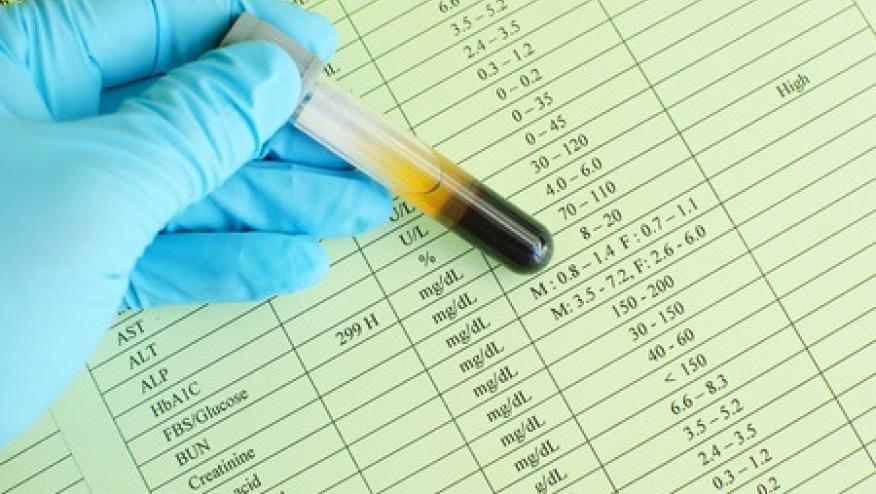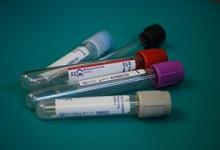Azathioprine Adverse Events Associated with TPMT Polymorphisms Save

Azathioprine (AZA) is widely used in the treatment of several autoimmune diseases. Its use and optimal dosing may be limited by adverse drug reactions (ADRs). Thiopurine S-methyltransferase (TPMT) is an important enzyme involved in AZA metabolism.
AZA is a pro-drug that is rapidly converted into 6-mercaptopurine (6-MP) via a glutathione-dependent process. TPMT is an important cytoplasmic enzyme catalyzing the methylation of 6-MP leading to the active metabolite 6-TGN..
Approximately 4%-11% of individuals are heterozygous for a mutant TPMT allele and have intermediate TPMT activity. Fewer (approximately 1 in 300) will be homozygous or compound heterozygous and have very low or absent TPMT activity. Individuals with intermediate TPMT activity accumulate 50% more 6-TGNs when compared with normal or high TPMT activity and thus at increased risk of AZA-induced ADRs. Patients with deficient TPMT activity rapidly accumulate high doses of 6-TGNs, and are at risk for major bone marrow toxicity.
Although several clinical guidelines recommend determining TPMT genotype or phenotype before initiating AZA therapy, there is no consensus on this issue. Hence, a metanalysis of 11 published studies and 651 patients with autoimmune diseases studied the associations between AZA TPMT polymorphisms and ADRs.
Of the 384 patients analyzed, 101 patients had ADRs - 14.9% of ADR+ patients were TPMT polymorphism positive and 6.4% of the 283 no-ADR patients were TPMT polymorphisms positive. TPMT polymorphisms were significantly associated with AZA-induced overall ADRs (OR 3.12; 96%CI 1.48–6.56), bone marrow toxicity (3.76; 1.97–7.17) and gastric intolerance (6.43; 2.04–20.25). These findings were strongest in asians rather than caucasians. TPMT polymorphisms were not associated with hepatotoxicity.
These studies included patiens with both heterozygous and homozygous TPMT polymorphisms. But, subanalyses indicated that TPMT heterosigosity was also associated with AZA-induced overall bone marrow toxicity.
While a TPMT polymorphism may be associated with an increased risk of AZA-induced ADRs, the presence of normal TPMT genotypes does not preclude the development of ADRs during AZA treatment. TPMT polymorphism explains a variable proportion of AZA-related ADRs, but in no way explain all episodes of ADRs. Therefore, laboratory monitoring remains an essential measure to ensure AZA safety.










If you are a health practitioner, you may Login/Register to comment.
Due to the nature of these comment forums, only health practitioners are allowed to comment at this time.